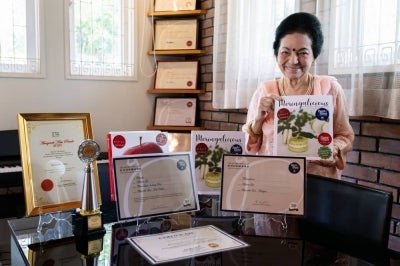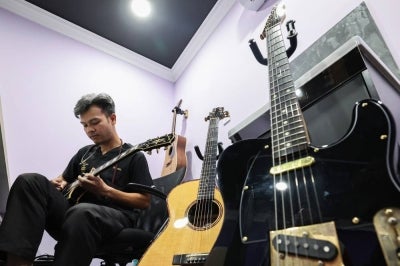Real talk: Is marriage still in the cards for Gen Z?
The idea that Gen Z is potentially losing interest in marriage and starting a family has sparked widespread discussion, particularly as Malaysia’s marriage and birth rates continue to decline.

MARRIAGE and parenthood have long been central to society, but shifting attitudes among younger generations suggest otherwise. With declining marriage and birth rates, many wonder if Gen Z is truly rejecting these traditional milestones.
According to the Department of Statistics Malaysia (DOSM), Malaysia’s marriage rate fell by 12.5 per cent in 2023, with Muslim marriages dropping significantly by 16.8 per cent. While non-Muslim marriages saw a slight increase, overall trends indicate a shift in priorities.
Divorce rates also declined, with the highest number occurring in the 30–34 age group.
Meanwhile, fertility rates have dipped below the replacement level in 13 states, with Penang and Kuala Lumpur recording the lowest at 1.2 children per woman. It was reported that Malaysia now has the third-lowest fertility rate in Southeast Asia, behind Singapore and Thailand.
Beyond Malaysia, countries like South Korea have seen the rise of the "4B Movement," where many women reject dating, marriage, and childbirth. The trend reflects growing financial concerns, career aspirations, and a preference for independence over traditional family structures.
The idea that Gen Z is potentially losing interest in marriage and starting a family has sparked widespread discussion, particularly as Malaysia’s marriage and birth rates continue to decline.
But is this generation truly turning away from marriage, or are they simply redefining its role in modern life? Sinar Daily spoke to several young Malaysians to understand their perspectives.
WHAT DOES GEN Z SAY?
For Haikal Iskandar, 27, a private sector worker, marriage has always been a goal. This July, he will be marrying his girlfriend, whom he has known since he was 16.
“When it comes to marriage and settling down, I believe it’s natural for people to desire it.
“In Islam, marriage is both a 'sunnah', something encouraged and a 'fitrah', an innate part of human nature,” he said.
Haikal believes that marriage is something most people desire, though the timing varies for everyone. He trusts in Allah’s plan, knowing the right moment will come in His time.
For him, a relationship should be serious and mature, where both partners grow, learn from mistakes, and strive to become better together. He recalled a video from a foreign Islamic preacher who advised that when choosing a life partner, one should consider whether they bring peace of mind.
“After all, this is the person you will likely spend the rest of your life with, and having peace of mind in a relationship is invaluable,” he added.
Meanwhile, Naufal Yusri, 21, a student, admitted feeling conflicted about marriage. While the idea of finding "your person" and building a life together is appealing, he does not want to rush into it simply due to societal expectations.
“I think marriage can be beautiful if it’s with the right person, but it’s not the only way to have a meaningful, committed relationship.
“For now, I’m more focused on growing as a person and figuring out what I really want,” he said.
When asked about his ideal partner, Naufal highlighted the importance of connection, meaningful conversations, and kindness.
“Shared values are key, like being on the same page about big topics—family, goals, and handling conflicts. A sense of humor is a must, too.” he added.
Commenting on modern dating, he acknowledged that while dating apps are convenient, they often feel transactional. Swiping through profiles may not be romantic, but he understands why people use them, as meeting someone organically has become increasingly difficult.
“That said, I still love the idea of meeting someone through friends, at a party, or even just randomly in real life. There’s something special about that spark you feel when you meet someone unexpectedly.”

For Sofea Imran, 21, another student, marriage and family life remain an important aspiration.
“I would love to have my own family, raise my own kids, and go through life’s hardships together.
“In my opinion, it contributes to my personal growth, and having the responsibility of being a wife and a mother is a once-in-a-lifetime experience that I want to cherish,” she shared.
However, she acknowledged that financial concerns contribute to people’s hesitation about marriage. Her parents always reminded her that marriage itself is simple and affordable—it’s the cultural traditions that make it costly.
She believes that while partners can build financial stability together, financial security remains crucial as everything in life requires money. Sofea also emphasised that she wants a partner who can support her both emotionally and financially.
“As a woman, having a partner I can emotionally depend on is very important. In the future, I definitely want to settle down, build a family, and have a partner who supports me in my journey of personal growth,” she added.
Like Naufal, Sofea prefers traditional ways of meeting someone.
“You can see a person’s true colors better when you meet and interact with them in real life. Dating apps are useful, but I still prefer face-to-face interactions,” she said.
Maisarah Mohd Ghani, 25, a private sector worker, has been dreaming of marriage since she was a child.
“Growing up watching fairy tales about love and marriage made me fantasise about finding my own true love.
“More than anything, I long for a loving husband and a family of my own. That’s all I truly want in life,” she said.
For Maisarah, finding a partner with common sense, a warm heart, and strong Islamic values is essential.
“I need someone who knows how to treat women with kindness and respect,” she said.
On dating apps, she admitted they have become a significant part of modern relationships.
“Dating apps are not the future—they are the present. Everything is digital now, so it makes sense that dating has moved online.
“But traditional ways of meeting people have their charm. Both methods have their pros and cons, and it just depends on what works best for each person.”
From these conversations, it is clear that Gen Z’s approach to marriage is not about outright rejection but rather a shift in priorities and perspectives.
While some remain committed to traditional ideals of love and family, others focus on self-growth, financial stability, and emotional readiness before making a lifelong commitment.
Ultimately, marriage is still valued—it’s just evolving in meaning for a new generation.
Download Sinar Daily application.Click Here!















